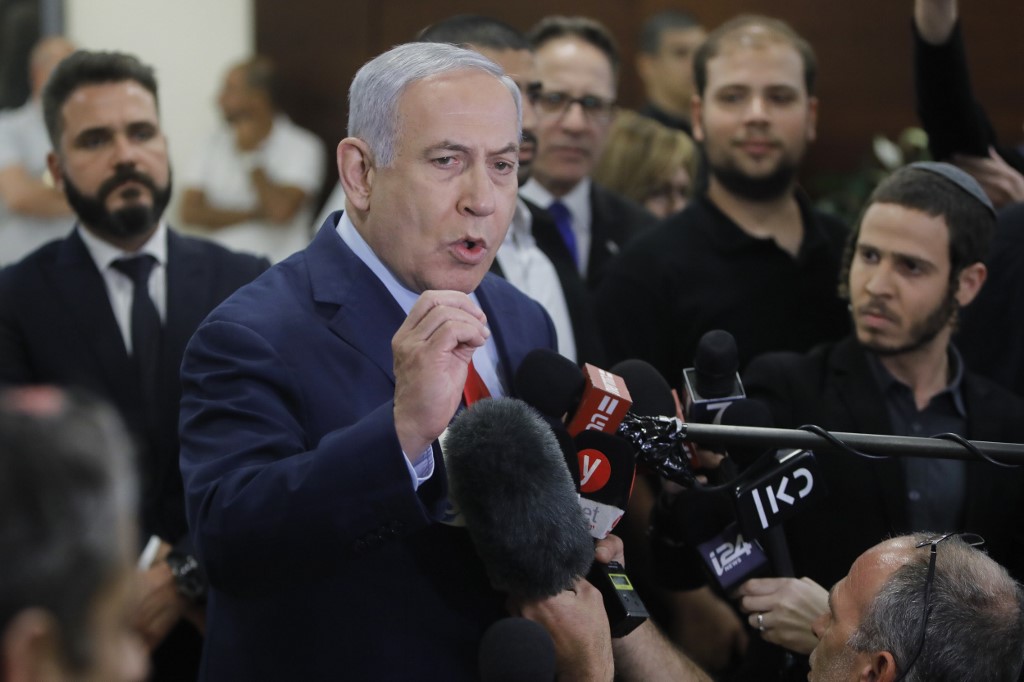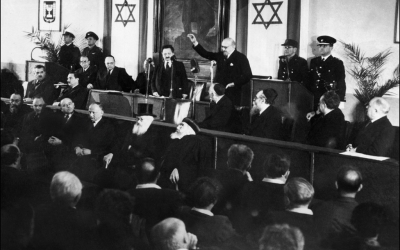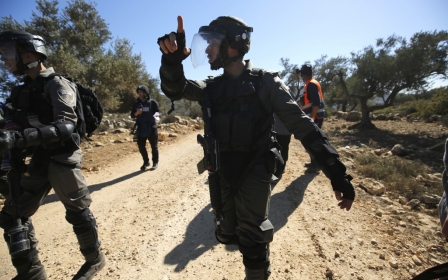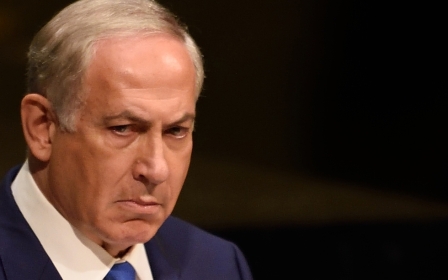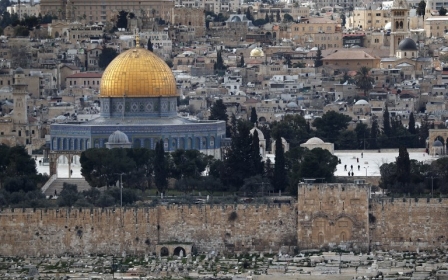Elected but under attack: How space is shrinking for Palestinian MPs in Israel
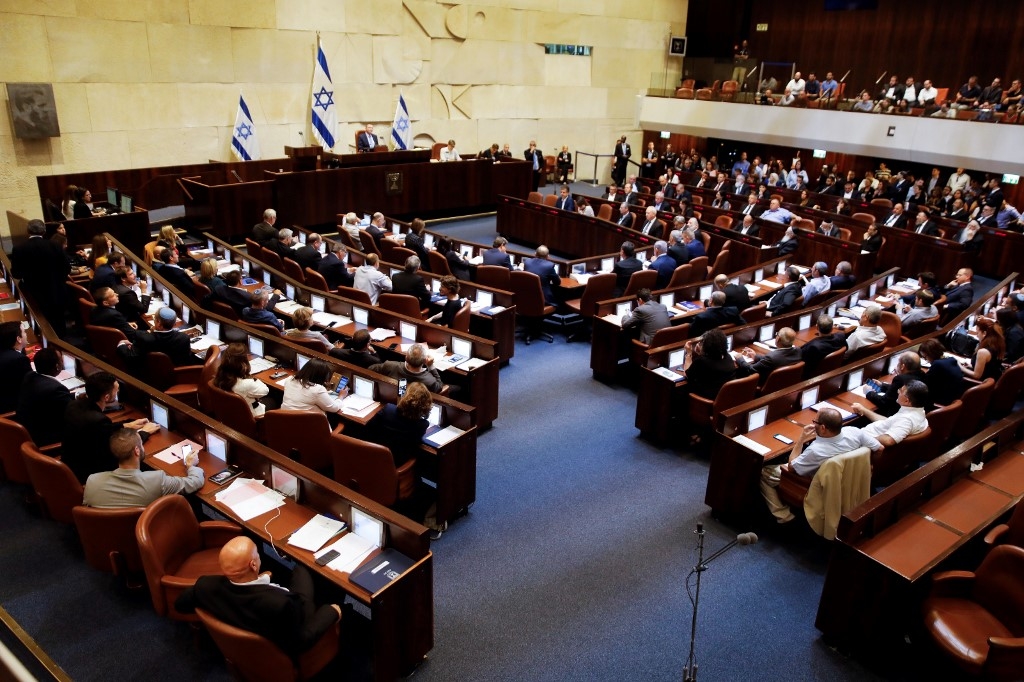
As Israel gears up for its second election in a year, Amnesty International has published a new briefing highlighting what it describes as “increasing threats” to the “freedom of expression” of Palestinian members of the Knesset.
“Elected but restricted: Shrinking space for Palestinian parliamentarians in Israel’s Knesset” was released two weeks before Israelis go to the polls on 17 September, and constitutes a stark summary of what Amnesty describes as a “shrinking space” for critics, and “entrenched” discrimination.
Central to Amnesty’s concerns are the “discriminatory” use of regulations and laws that undermine the ability of Palestinians elected to the Knesset to represent their voters.
Shunning political dissent
One example cited is a 2016 legislative amendment which allows the Knesset “to expel elected MKs through a majority vote of their fellow parliamentarians”, thus enabling “the political majority to dismiss an elected MK” for expressing political opinions deemed unacceptable – even when those statements “have not been the subject of any criminal or other judicial proceedings”.
New MEE newsletter: Jerusalem Dispatch
Sign up to get the latest insights and analysis on Israel-Palestine, alongside Turkey Unpacked and other MEE newsletters
Meanwhile, “Knesset regulations purportedly in place to enforce ethical practices among MKs have been used to restrict the right to freedom of expression, impacting Palestinian MKs in a discriminatory manner”, says Amnesty, highlighting a 2018 change “not to grant an MK permission to travel abroad if the trip is funded by ‘a body calling for a boycott of the State of Israel’”.
In addition to such rhetoric, bills put forward by Palestinian MKs have been disqualified on political grounds
Taken as a whole, the Amnesty briefing severely undermines the Israeli government’s familiar talking points, including the oft-repeated claim that the mere presence of “Israeli Arab” lawmakers is proof of a supposedly vibrant democracy.
“Senior Israeli government officials” have directed “inflammatory statements” at Palestinian lawmakers, says Amnesty, “intended to delegitimise them and their work”. For daring to criticise government policies, these MKs have faced calls for them to be “outlawed” or tried for “treason”.
Democracy deficit
In addition to such rhetoric, bills put forward by Palestinian MKs have been disqualified on political grounds. Since 2011, Amnesty states, “the Knesset has disqualified four bills related to Palestinians’ rights or political aspirations”.
These include a bill proposed by Palestinian MKs in 2018 offering a definition of Israel as “a country for all its citizens”, which was was blocked from “reaching a parliamentary discussion” on the grounds that “it would negate Israel’s definition as a Jewish state”.
“In Amnesty International’s assessment”, the briefing adds, “the decision discriminated against Palestinian MKs, seemingly on the basis of their national or ethnic origin”.
Ahead of the election later this month, this new document is an important reminder of the struggles faced by Palestinian MKs – restrictions that for some Palestinian citizens are sufficiently onerous as to render participation in the parliamentary system itself futile or counterproductive.
The new briefing is also an opportunity for a critical, and broader, reflection on Israel’s supposed democratic credentials. Aside from the restrictions facing Palestinian citizens within the Knesset, there are three key factors that make up Israel’s democracy deficit.
Divisive rhetoric
Firstly, there is the institutionalised discrimination in place since 1948. As the Amnesty briefing also notes, Palestinian citizens of Israel comprise around 20 percent of the total population “and, like any other Israeli citizens, their rights to political participation and representation are recognised by Israeli law”.
However, “Israeli legislation facilitates direct and indirect discrimination against Palestinian and other non-Jewish citizens in many areas, including citizenship, land and planning, housing, education and health”. Hardly the robust liberal democracy that Israel’s apologists claim.
Such decades-old discrimination has been exacerbated in recent years, as Israeli authorities have “stepped up their divisive rhetoric against minorities and marginalised communities”, and “threatened and smeared Palestinian and Israeli human rights defenders”.
Secondly, there is the issue of who is excluded from voting. While Israel lauds the fact that its Palestinian citizens can vote, many more Palestinians will be unable to vote later this month, despite having their lives directly controlled by the Israeli state and decisions taken by the Knesset.
Those excluded from voting include the vast majority of the more than 300,000 Palestinians who live in occupied and illegally annexed East Jerusalem with permanent residency, not citizenship.
That figure is dwarfed, however, by the close to five million Palestinians who live in the occupied Palestinian territories, subject to a military regime for the past five decades. In the West Bank, Israeli settlers living in illegal colonies will vote; Palestinians in adjacent communities will not.
Dehumanising Palestinians
It is also important to note the millions of Palestinians outside of historic Palestine, expelled from their homes by Israeli authorities in 1948, and their descendants. Israeli laws denationalised them, prevented their return, and thus created Israel’s Jewish majority of citizens.
Thirdly and finally, Israel’s democracy deficit is also evidenced by the widespread support for the dehumanisation of Palestinians and denial of their rights among Israel’s political mainstream.
It is a criminal consensus shared by Likud, as much as the opposition Blue and White alliance
Regardless of the outcome of the elections, the next Israeli government will, like all those that have preceded it, flout international law – including the commission of war crimes – and continue violating basic Palestinian rights.
It is a criminal consensus shared by Likud, as much as the opposition Blue and White alliance.
Put all that together – along with the institutionalised discrimination, and the fact that millions of Palestinians can’t vote for the government that controls their lives – and one recalls the quote by MK Ahmed Tibi, that Israel is “democratic towards Jews, and Jewish towards Arabs”.
And for those committed to the principle of equality, such a definition is, of course, no democracy at all.
The views expressed in this article belong to the author and do not necessarily reflect the editorial policy of Middle East Eye.
Middle East Eye delivers independent and unrivalled coverage and analysis of the Middle East, North Africa and beyond. To learn more about republishing this content and the associated fees, please fill out this form. More about MEE can be found here.



